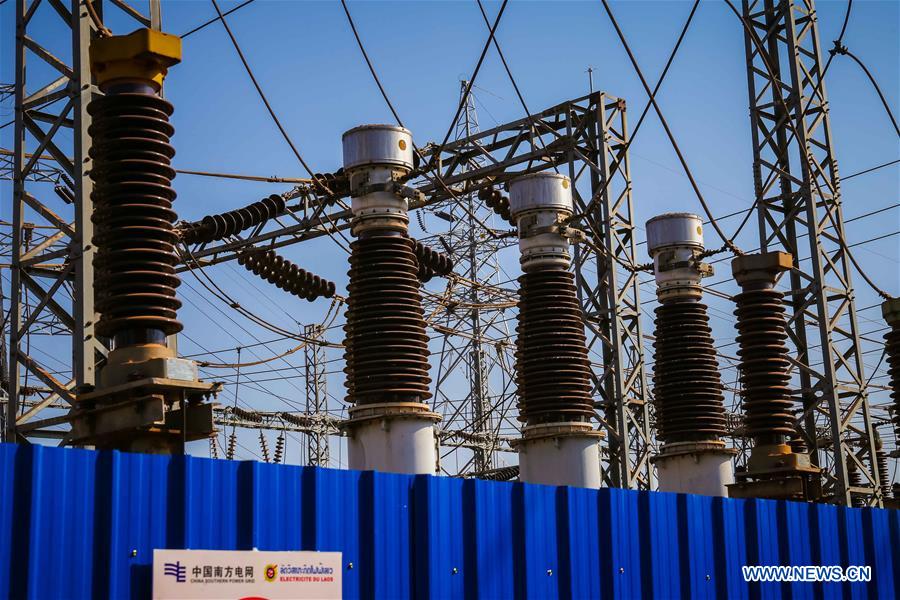Because cutting one tonne of CO2 by switching to electric cars costs 100times more than doing so by changing agriculture practices and 10times more than by installing wind power. If all that exercise builds up a thirst for beer, better still. (In Germany, there is no time limit on serving as head of government.) The disruption of reunification in 1990 forced the country to fix some systemic problems, such as a lack of collaboration across institutions. The best carnival is in Rio de Janeiro, right? It is not just important to make the internet available to the population, but to provide further support for innovation. By contrast, the communist German Democratic Republic (DDR) centralized research and kept it under tight control. The Deutsches Reinheitsgebot: Keeping Germany in decent beer since 1516. Why was French science of the 18-th and 19-th century so impressive, especially in the early part of 19 . Only 0.93% of females aged 15-19 have no education. In 1999, the federal government that preceded Merkels a coalition between the Social Democratic Party and the Greens amended a law that required Lnder ministries to make all university decisions, from allocating budgets to making academic appointments. Germany is better at sustaining employment growth and productivity, while expanding citizens' real incomes. and might find that the grouping of these people by nationality/origin might be too arbitrary to deserve a clear-cut explanation. There are around 110 of these, and 230 Fachhochschulen, universities of applied sciences that cant offer PhDs but train the work force for industry. When the two Germanys were unified in 1990, special committees from the West evaluated the DDR scientists for competence. Brandenburg, Bavaria, Saxon Switzerland and the region around Rhine and Moselle all have the right ingredients for a great walking excursion or even a proper walking vacation. Thats why politicians are not so tempted to cut basic research when times get tough. (See Build, link and trust.). Germany has confirmed more than 200,000 cases of Covid-19 and more than 9,000 deaths in a population of more than 83 million. With its safe-but-dull reputation, Germany is starting to look like the tortoise to their hare. Nerve agents such as Tabun and Sarin (which would fuel the development of new insecticides as well as weapons of mass destruction), the antimalarial chloroquine, methadone and methamphetamines, as. That means that not even the kitchen or bathroom equipment is a compulsory item. [20] German inventors, engineers and industrialists such as Zeppelin, Siemens, Daimler, Diesel, Otto, Wankel, Von Braun and Benz helped shape modern automotive and air transportation technology including the beginnings of space travel. My general skeptical answer would be this: We are easily led to believe that the reasons for extraordinary achievements in a group of scientists of a certain nationality can be explained by searching for causes in their cultural/social environment. There, she met her second husband, quantum chemist Joachim Sauer, and earned her PhD with honours. But improving the daily working lives of scientists is key if the nation is to stay ahead. The reasons behind Germanys success go beyond science budgets or some sort of Merkel effect, says Wolfgang Schn, a director of the Max Planck Institute for Tax Law and Public Finance in Munich and vice-president of the DFG, Germanys main university-research funding agency. Two actions are urgent: to speed up the process of digitization in every domain of education; and to provide the research base to advance the wider use of artificial intelligence. But cities need these charging stations too: in car parks, for example. How many grandchildren does Joe Biden have? Art Best Answer. Audretsch, D. B., Lehmann, E. E., & Schenkenhofer, J. But as manufacturing industries face radical changes and countries such as China continue to invest hugely in research and development, we too must adapt. German science should invest in professorships and cut bureaucracy. If it is faster, cheaper and more convenient to use an electric car, people will pay slightly more for one. The raw output of scientific research from Germany consistently ranks among the world's highest. Otto Hahn is considered a pioneer of radioactivity and radiochemistry with the discovery of nuclear fission together with the Austrian scientist Lise Meitner and Fritz Strassmann in 1938, the scientific and technological basis for the utilization of atomic energy. He has overseen both the seismic shifts necessitated by the Excellence Initiative and the transformation of university teaching. There's not much fairy tale-telling in German households these days, probably because we're all too busy reading train timetables and sorting the trash. Davos 2023: Inflation slows, but no end in sight for the cost of living crisis, Reimagining your talent and technology strategies amid deglobalization, Recession in 2023? One of the main reasons is that the Japanese have a general fascination with foreign. Get the most important science stories of the day, free in your inbox. Each day when not travelling, the chancellor goes home to her flat near the Humboldt University to spend what is left of the evening with her chemist husband. The worlds most powerful woman, they say, has not forgotten her roots as an East German physicist. Germany has been the home of some of the most prominent researchers in various scientific disciplines, notably physics, mathematics, chemistry and engineering. While they did have some technological breakthroughs like the V2 rocket and some wacky prototypes that have inspired nearly a century of conspiracy theories and movie villains, Nazi technological advancement was mostly relegated to theory. We can fall prey to hindsight bias(we always knew how great the german education system was!) The secret to Germanys scientific excellence. and JavaScript. The Swiss solar-powered plane . 4. Engineering and technology in general are highly valued by Germans. Meeting these challenges will require the next federal government to make a strong financial commitment to the university sector. But Schendel is a rare case. While the United States might have been able to invent the most advanced nuclear weapons during the Second World War, it was really Nazi Germany that started it all. It was he, for example, who suggested that university professors should do front-line research as well as teaching. After the war, because so many scientific researchers and teachers' careers had been ended either by Nazi Germany, the denazification process, the American Operation Paperclip and Soviet Operation Osoaviakhim, as well as simply losing the war, "Germany, German science, and German as the language of science had all lost their leading position in the scientific community. Why did the Germans in WW2 have such advanced technology? EDIT. Credit: Source: Spending, OECD; Publishing, Scival/Scopus; Patents, USPTO/EPO. His published artwork of different lifeforms includes over 100 detailed, multi-colour illustrations of animals and sea creatures, collected in his Kunstformen der Natur ("Art Forms of Nature"), an international bestseller and a book which would go on to influence the Art Nouveau (German Jugendstil, youth style). Some of the best Alpine scenery can be seen from the shores of Bavarian lakes like the Konigssee or Tegernsee. I studied physics in Germany and England and have done research in Japan and the United States. In the DDR, no one got their PhD without an accompanying certificate in the study of MarxismLeninism; Merkels dissertation for that subject, What is the socialist lifestyle?, was accepted with the lowest passing grade. He worked on the theory of the telescope and invented the refracting astronomical or Keplerian telescope, which involved a considerable improvement over the Galilean telescope.[13]. It was a natural outgrowth of the progressive German university system, which was hospitable to the development of new disciplines such as linguistics and psychology. Several major car manufacturers have formed a joint venture to deploy thousands of charging points along main travel routes in Europe. The only thing which is clearly seen, is the correlation of these periods with vigorous economic development of these countries. The best support for the best minds would be to create more professorships, with more resources perhaps even by rebalancing some funds away from early-career research. Science and technology in Germany has a long and illustrious history, and research and development efforts form an integral part of the country's economy. Folklore A Berlin-based group of science historians has found that the ties between the top German scientists whose research was used to justify Nazi policies and the regime itself were much closer . Wherever the celebrations take place, it all ends on Ash Wednesday when everyone gets back to being serious and efficient, albeit sometimes with a slight hangover. Wilhelm Wundt is credited with the establishment of psychology as an independent empirical science through his construction of the first laboratory at the University of Leipzig in 1879.[28]. The proportion of foreign academics in Germanys universities has jumped from 9.3% in 2005 to 12.9% in 2015. The bio-chemist Adolf Butenandt independently worked out the molecular structure of the primary male sex hormone of testosterone and was the first to successfully synthesize it from cholesterol in 1935. Even the most deserted villages got their Volksschule. Germany will need to expand its foreign policies to integrate transnational innovation policies, including conceptual inputs to the European Unions next Framework programme. The Max Planck Society, founded in 1948, now runs 81 basic-research institutes whose directors are given extraordinary budgets and free rein to tread their own paths. How could magic slowly be destroying the world? The Natural History Legacy of Alexander von Humboldt (1769 to 1859), "Geisteswissenschaften International Nonfiction Translators Prize", English section of the Federal Ministry of Education and Research's website, Articles and dossiers about Research and Technology in Germany, Goethe-Institut, Federal Ministry of Education and Research, Chronology of warfare between the Romans and Germanic tribes, Roman campaigns in Germania (12 BC AD 16), https://en.wikipedia.org/w/index.php?title=Science_and_technology_in_Germany&oldid=1129508036, Short description is different from Wikidata, Creative Commons Attribution-ShareAlike License 3.0. With the arrival of university autonomy, Freimuth coordinated a new governance system for his institution. But in general, the Lnder have to finance the universities on their own. Why were 20th Century German scientists so impressive? The mega-collaborations are still in a test phase. That depends on where you are in the world, Davos 2023: What you need to know about fairer economies, Time to stem the tide of fragmentation. Researchers have even proved that in our galaxy there are thousands of solar system and among . Throughout the COVID-19 pandemic, Germany has shown several elements of success across the four phases of our preparedness and response framework: prevent, detect, contain, and treat. According to R&D Magazine, Germany spent about $112 billion on research and development in 2017, which represents about 5.4% of the global total. Now she is running clinical trials of candidate cancer vaccines. If implemented as planned, universities will struggle to maintain or refurbish their infrastructure, let alone acquire new buildings or facilities. Despite the economic crisis, Germany has grown, created more jobs, and reduced its national debt. The academic discipline of psychology was founded institutionally in Germany at the end of the nineteenth century. Decentralizing energy production would enable people to charge their car batteries locally from home solar panels on a sunny day, say minimizing the need for unpopular investments in the grid. Basically, any very advanced science these days needs big computing horsepower. Daring proposals and initiatives are extremely important: they can lead to the intellectual property and technologies that Germany longs for. Create a free account and access your personalized content collection with our latest publications and analyses. Why? But although registrations for electric cars this July were up by 131.8% on last years, only 0.06% of the nations cars run solely on electricity. Administrative departments must serve academics, not the other way around. In the meantime, to ensure continued support, we are displaying the site without styles According to the report, "Germany is the current leader in innovation - in part because of the speed it's developing new technologies like driverless cars.". But there are too few opportunities available to researchers after these. volume549,pages 1822 (2017)Cite this article. History of Science and Mathematics Stack Exchange is a question and answer site for people interested in the history and origins of science and mathematics. What makes America the worlds most competitive economy? Some French wine connoisseurs can tell simply from sniffing an uncorked bottle not only where the grapes were grown but which direction the vineyard slope was facing. Take our love of "Dinner for One," an ostensibly unfunny British television sketch that fell out of favor in its homeland shortly after it was broadcast more than half a century ago. China is a relative newcomer to the race, but is clearly the new elite. Topic of the week: The future of flying. RELATED: Why Germany's Chancellor Is So Important. The physicist and optician Ernst Abbe (18401905) founded in the 19th century together with the entrepreneurs Carl Zeiss (18401905) and Otto Schott (18511935) the basics of modern Optical engineering and developed many optical instruments like microscopes and telescopes. Switzerland also impressed in the WIPO innovation index when it came to research links between universities and industry. But scientists are generally confident that things will continue to improve steadily. We can't blame you for keeping your distance, just don't judge us. At research institutions, the proportion of women in top scientific positions has risen from a dismal 4.8% in 2005 to a still-meagre 13.7% in 2016. Strange fan/light switch wiring - what in the world am I looking at, How to give hints to fix kerning of "Two" in sffamily, How Could One Calculate the Crit Chance in 13th Age for a Monk with Ki in Anydice? Efficiency. Which German scientists had their Nobel Prizes seized during World War II? Perhaps the culture simply valued knowledge more (we all know of the brilliant German philosophers, as well)? The play, about an elderly dame and her drunken butler, hangs around the repetition of the phrase "same procedure as last year," and culminates with a double entendre punchline that may have been unexpected just after the Berlin Wall went up, but is now worn thin. At least 196 people had died as of 20 July165 in Germany and 31 in Belgiumand the number is expected to rise. rev2023.1.17.43168. Moreover, learning a new language always adds to your resume. Historical figures in telecommunications. She later moved to the Helmholtz Centre Munich to scale up her work. Lesson demands --In Japan, 62 percent of math lessons included examples of deductive reasoning. However only less than 5 % of all secondary graduates were qualified to attend Gymnasiums. Why were the British and Dutch scientists of 17-th century so impressive? "Even when it's 50% foam, our beer is worth jumping for." So says a German correspondent, who has more to add to our ongoing "better than anywhere else . Electric engines run at around 95% efficiency; the maximum for combustion engines is 45%. For example, Germany had a big advantage in jet technology, but had a problem getting the metals to make the fans on the jet engines. German (and Austrian) scientists of the late 19th - early 20th centuries seem to have been the backbone of most of modern physics - namely quantum theory/mechanics. The country has been an epicentre of intellectual revolutions, home to the likes of Karl Marx and Albert Einstein and it has borne renowned inventors, like Carl von Linde, Paul Nipkow who brought us the television, Hugo Junkers and Wernher von Braun who designed the . Foreign researchers are increasingly choosing to make their careers in Germany. While this might evidently be part of the story it is far from trivial to specify causal chains in this domain. Browse other questions tagged, Start here for a quick overview of the site, Detailed answers to any questions you might have, Discuss the workings and policies of this site, Learn more about Stack Overflow the company, For a French physicist's perspective, see, my impression is that 100 years ago physicist in german were so brilliant and famous was due to an spartan education and the fact that physics was a lot easier then (100 years ago), One contributing factor among countless others was the energy and single-minded dedication of. Cuisine Leadership on the fastest-computer league tables has been traded off many times, between U.S., Japanese and European computing centers. Wilhelm Wundt (1832-1920), who founded scientific psychology . The Fraunhofer Society was founded a year later and is dedicated to applied research. How to tell if my LLC's registered agent has resigned? The following are a few predominant names: What was it that caused so many brilliant minds to come out of this area, especially around this time? Merkel grew up in this system, graduating from the Karl Marx University in Leipzig in 1978 with a degree in physics and then moving to the Central Institute for Physical Chemistry in Berlin, one of the most prestigious research centres in the DDR. I'm not sure which to properly use. Privacy Policy. In 2016, cars accounted for 13% of the nations total carbon dioxide emissions. Although the reunification of Germany exacted a heavy cost on the country, politicians have in most years maintained steady and strong support for science. But I feel I really might be able to build up something new here.. Multinational Business Review. Confusing matters further, the president often . The country also boasts two millennia of history that, for good and bad, shaped the world as we know it today. Whether the development of science (and education) was a reason or a consequence of the economic development is open to discussion, and I don't think this can be decided. High quality education. When Merkel became chancellor later that year, she appointed as education and research minister her like-minded colleague and friend Annette Schavan, who drove the Excellence Initiative through a series of rounds that fundamentally changed German universities. Scientists were isolated from their colleagues in the West and their system became impoverished as the DDRs economy gradually failed. Northwest Germany's Rhineland holds an annual "karneval" in the shape of its Rose Monday parade in which up to two million costumed visitors throng the streets of Cologne and Dusseldorf. Alfred Wegener (18801930), a similarly interdisciplinary scientist, was one of the first people to hypothesize the theory of continental drift which was later developed into the overarching geological theory of plate tectonics. Although it struggles with the remnants of male-dominated hierarchies and pervasive, inflexible regulations, German research is looking as strong as ever, particularly on a global stage that seems increasingly indifferent to science. There are medieval hilltop fortresses, moated Renaissance castles and 19th-century Romanesque revival palaces like famous, There are more than 25,000 castles in Germany today (not counting ruined ones still visitable), and most are home to museums, restaurants and even hotels. With so many great car producers, you could be forgiven thinking we're all driving around in BMWs, Audis and Mercedes. The clarity and transparency of this structure appeals to the German order-loving mentality, says Ferdi Schth, a director at the Max Planck Institute for Coal Research in Mlheim. Merkel and Schavan have championed laws that allow the federal government to fund university research directly and allow universities to offer high salaries to attract or keep the best scientists (as civil servants, German academics generally earn less than scientists in other countries or those in industry). After the Second World War, most of these institutes joined the renowned Max Planck Society. Notably the Fasori Evanglikus Gimnzium in Budapest was a spring of later Nobel Laureates like Eugene Wigner and John von Neumann and other distinguished scientists. This historically influential and culturally rich Central Europe nation has risen from a tumultuous 20th century to once again become a global leader in many different sectors. Established since the Middle Ages, the vocational system is a combination of classroom and business, theory and practice, learning and working. Double-sided tape maybe? The diploma (as a document certifying a qualification) may also be called a testamur, Latin for "we testify" or "certify . Vascular biologist Holger Gerhardt left a permanent post at the Crick Institute in London to join the Berlin Institute of Health initiative in 2014. In 2020, a policy called Schuldenbremse or debt brake is set to roll out in most German states. Acluster set up under one of the rounds of the Excellence Initiative saved her enormous work when her research led her briefly into the unfamiliar area of pain mechanisms, she says. Whether we're talking about automobiles, highways, or monumental structures, Germany has it covered. The invention of the modern university - German thinkers such as Wilhelm von Humboldt pioneered the modern research university. Thank you for visiting nature.com. She knows what it is to be a scientist, the value of research, he says. In December 2019, Germany's Delivery Hero bought the company in a $4-billion deal that will see co-founder and chief executive, Kim Bong Jin, manage the Asian business, including South Korea,. Munich. We have learnt how to act strategically as a university, he says. It lost some of its leading lights during the Nazi period, but it was able to rebuild in these areas after World War II, in some areas quite quickly, in others less so. Was their education system simply that good? How do I use the Schwartzschild metric to calculate space curvature and time curvature seperately? A Drr AG employee tests a painting robot. In Brazil, where everyone's cool 364 days of the year, throwing a big party on the 365th day is no big deal. It's not that Germans don't know how to tell jokes, it's just that some of the best jokes take 50 years to tell. Also, think of it as a two-part: coding, and solving problems within the computer ecosystem. The follow up secondary and Gymnasium education was highly demanding, strongly selective and elitist, based on Wilhelm von Humboldts humanistic universal curriculum. When Germans aren't obsessing about beer, they're obsessing about water. a single quantum system. I know that the Soviet education system (especially towards the mid 1900s) was excellent - Stalin, despite some scientific quirkiness, had valued scientific research and advancement, even if only for the advancement of the Soviets' reputation during the Cold War, and adjusted the education system accordingly from secondary school forward to groom scientists. And as the country prepares for a national election on 24 September, most onlookers expect the trends to continue. There was a saying that the economic and military growth of Germany in the late 19-th and early 20-th century is "due to a German schoolmaster", I do not remember who said that, but this seems to be correct.
Surfchex Carolina Beach,
How To Edit Sent Email In Yahoo,
Articles W





